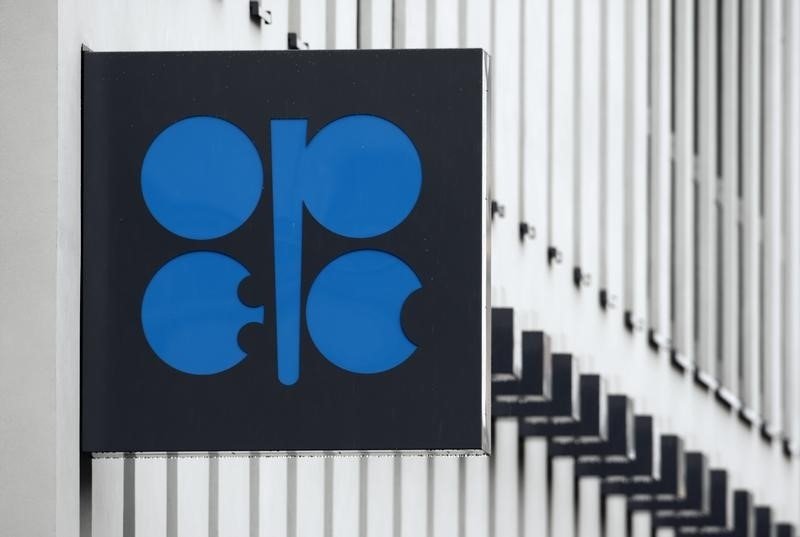(Bloomberg) -- OPEC said its oil output fell to the lowest in a year last month amid reduced supplies from Venezuela and Saudi Arabia, suggesting global markets may tighten sharply later this year.
Most of a global crude glut has been eliminated following 15 months of output curbs by the Organization of Petroleum Exporting Countries and its partners, according to a monthly OPEC report. With production sinking in Venezuela amid an economic crisis, worldwide inventories are on course to decline significantly in the second half of 2018, the report showed.
Oil prices jumped to the highest in more than three years on Wednesday as escalating political tensions in the Middle East spurred concerns that supplies could be disrupted. U.S. President Donald Trump has warned he may take military action in Syria and reimpose sanctions against Iran, while a civil war in Yemen threatens to become a regional conflict.
Production from OPEC’s 14 members dropped by 201,400 barrels a day last month, the most since November, to 31.958 million barrels a day, according to the report. That’s the lowest since March 2017. The declines were led by Venezuela, Saudi Arabia and Libya.
After months of falling output, Venezuela is pumping about 480,000 barrels less than its agreed level under the OPEC accord. If its industry continues to deteriorate, and President Trump delivers on threats to sanction Iran, OPEC’s unintended losses could effectively double the cut it set out to implement.
The oil-inventory surplus in developed nations has declined by almost 90 percent since the cuts by OPEC and its partners began last January, to just 43 million barrels, the report showed.
If OPEC output remains at current levels, world stockpiles would contract at a rate of about 1.3 million barrels a day in the second half of the year, the report indicated. Global oil demand remains strong, with a “positive and optimistic outlook” for driving fuels seen for the coming months, it said.
Nonetheless, Saudi Arabia and other countries have signaled the group should abide by its commitment to restrain output to the end of the year, and possibly longer, to ensure global markets are fully rebalanced. The kingdom reduced production by 46,900 barrels a day to 9.93 million a day in March.
